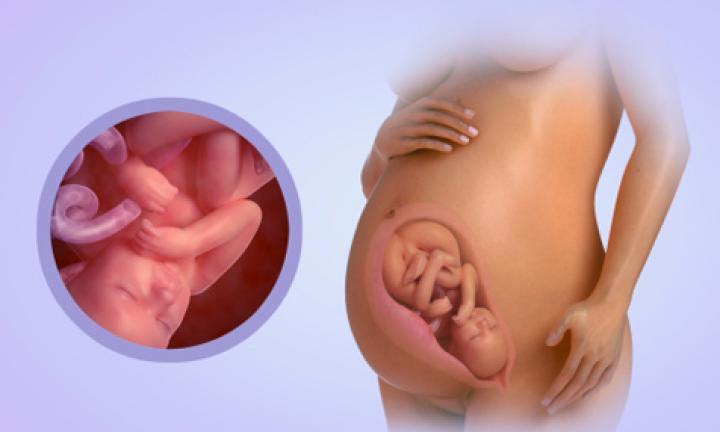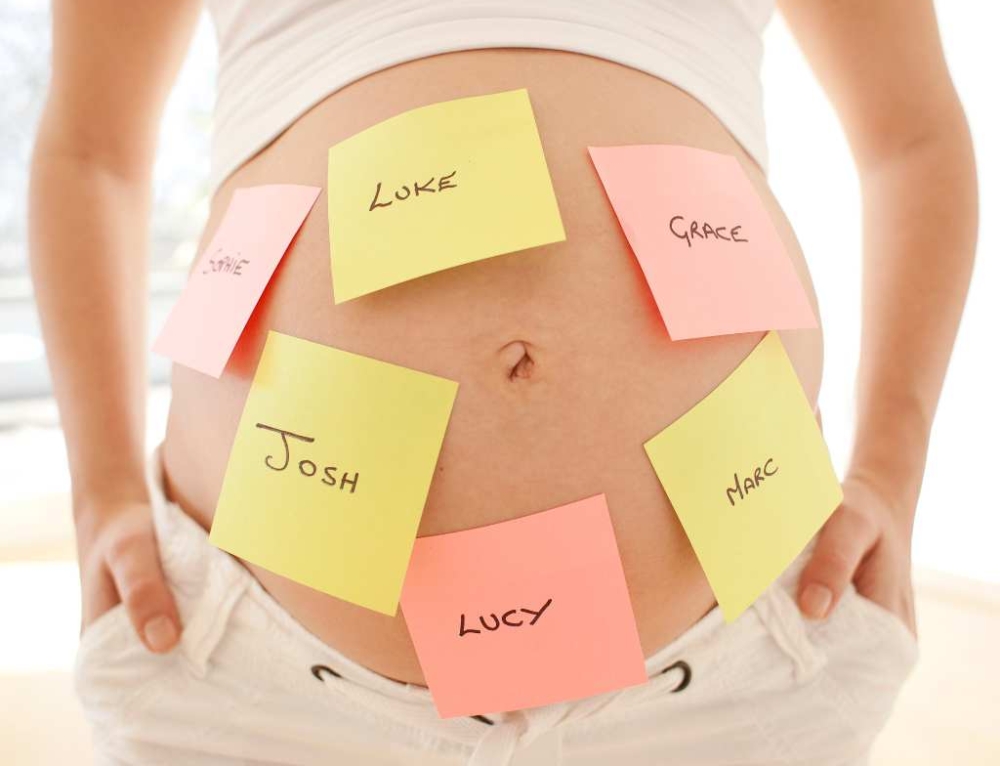Welcome to your week 38 pregnancy update where we outline the changes you and your baby are experiencing.
Your Baby
There’s not much new going on in your belly besides more preparation for life outside the womb for baby. Baby is continuing to shed that fuzzy lanugo hair on his body and producing more surfactant to get his lungs ready to breathe proper air. Baby’s probably having a squishy old time and getting into position to meet you. He’s gone from being a single cell just 38 weeks ago to being a complex human baby with trillions of cells — amazing, if you stop to think about it.
The amount of fat on your baby’s body has increased from being only 30 grams at 30 weeks pregnancy, to around 430 grams as he gets close to being born. Baby needs to lay down the fat to regulate his temperature once he leaves the comfort of your womb. Baby’s brain won’t be mature enough to regulate his temperature as efficiently as an adult brain does, which is why baby needs to be wrapped and held close to your body once he is born.
This late in pregnancy, scientists have found that baby’s breathing movements increase during the second and third hours after mums eat breakfast in the morning. Baby is likely to become quiet again around 7pm in the evening, though not all babies will follow the rules. Some experts theorise that these womb routines follow into the early days after birth.
Right now, baby’s intestines are filled with a sticky, greenish-black material called meconium, which will be expelled as baby’s first poo soon after birth. When baby is born and you start to breast feed, your colostrum acts as a laxative to help baby move his bowels and expel those meconium stools. Some babies will poo as they are born or just before birth.
Just like adults, all babies are different and develop at varying rates in the womb. This information gives a general idea of your baby’s development and progress.
The Mum Update
Your cervix may have started thinning and dilating. The thinning is your cervix spreading out as a result of having the baby’s head pressing on it. When it is thinned it will be easier for it to dilate. If it has already thinned, it may even be slightly dilated. Your cervix will dilate between 1 and 10mm. When you hit 10, you are ready to deliver. Take it easy. Your heart is pumping more than 45% extra blood around your system.
After your baby is born, you may feel very emotional. You may even wonder if having a baby was a good idea. This is postnatal depression or PND. Most women experience some degree of PND. Many experts consider some degree of PND to be normal. However, symptoms of postpartum depression may not appear until several months after delivery. They may occur when you start getting your period again and experience hormonal changes.
Early recognition of PND is extremely important; it is a medical condition that can be treated with medication and counseling.







Leave A Comment
You must be logged in to post a comment.